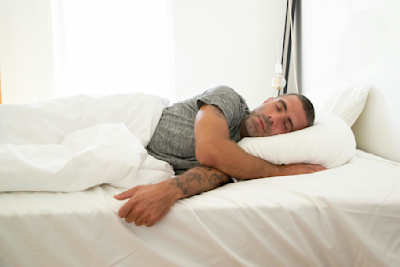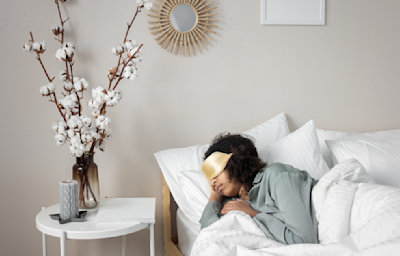
How to Effectively Deal with Stress
How to Effectively Deal with Stress: 7 Tips on How to Let Go and Relax
Stress is an inevitable part of our lives. Being a natural reaction of the body, it stimulates our system and mobilizes it to retreat or fight in exceptional and unpredictable situations.
Humans, just like animals, react to emotional stress as well as to physical danger according to the fight-or-flight response: by running away or preparing for a fight. Even a small argument can raise the body’s readiness to fight. That’s how biology designed our mind and body to respond to stress, however, is it still accurate? Unfortunately, in our modern world, we experience many issues which we unconsciously perceive as stressors. A meeting with a boss or being late to work is not a life threat, and yet we respond very similarly to it, even though we are not aware or fully in control of our reactions.
After the release of adrenaline and other hormones into the bloodstream, the muscles begin to tense, the heartbeat quickens and breathing becomes faster, blood pressure and sweating increases too. Lower stress levels are desirable as excessive prolonged stress can be harmful. It reduces our productivity and can cause a variety of health problems.
We’ve put together some useful tips on how to deal with stress.
1. Work out regularly.
Working out is an absolute must if you lead a very demanding and stressful lifestyle. Exercise will make you feel much better. Physical activity encourages the release of endorphins (the hormones of happiness) in the brain. The rule is simple: tired muscles are relaxed muscles.
Depending on the type of exercise, it can help us to either forget about our problems or come up with possible solutions to them. Besides, regular workouts will keep you fit and healthy. As illness can be an additional source of stress, trying to prevent it is a good idea.
Check out our article on 30 Offline Hobbies to Try Outdoors.
2. Practice mindful breathing exercises.
Breathing exercises offer an extremely simple, convenient, and yet very effective way to relieve stress and reverse your stress response, reducing the negative effects of chronic stress. We discuss the biology of proper breathing on our page dedicated to the subject. It offers a very detailed overview of the biology of breathing and the science behind all the benefits of breathwork.
You may also like to read about mindful breathing and why it matters to our overall health and well-being.
3. Organize your surroundings.
Whether at work or at home, clutter may cause stress and chaos in your head. Keep your surroundings in order. Make sure your desk is tidy. Organize the spaces where you work and rest as a priority. This will help you relax more easily. Check out our article on holistic spaces & the power of wellness-inspired interiors
4. Do one thing at a time.
Multitasking doesn’t work. We wrote about the benefits of teaching your child to monotask but the same goes for adults and teenagers. Typing something on the computer, watching TV and talking on the phone at the same time isn’t a good idea. Believe it or not, a regular habit like this can be a huge source of stress in your life.
Try to focus on one thing at a time. Less stress is just one advantage of such an approach. You’ll also complete all of your tasks faster and more efficiently. If you try to do various things simultaneously, it takes a longer amount of time.
5. Take a power nap.
Just like meditation, regular naps can reduce the level of cortisol in your body. Stress is often the effect of too little sleep or insomnia. Take a nap during the day. Even 15 minutes of sleep will do you good. If you can’t nap, try meditation.
6. Drink tea.
For thousands of years herbal infusions have been considered to be an extremely effective natural tool in the fight against stress. Drinking tea is an easy way to unwind. Herbs which might help you feel calm include (but are not limited to):
● Lemon balm (melissa officinalis)
● Camomile (matricaria recutita)
● Holy basil (tulsi or ocimum sanctum)
● Ashwagandha (withania somnifera)
● Milk thistle (silybum marianum)
7. Try aromatherapy.
The use of essential oils is another thing that might help you relax and relieve stress. Aromatherapy can help you to control your breathing and turn negative emotions into positive ones. Its efficiency is connected with the fact that the sense of smell is closely linked with the part of the brain responsible for emotions.
Add a few drops of essential oil to a hot bath or use it in an aromatherapy lamp to make the smell spread throughout the house. Natural scents which are great for relaxation and sleep include (but are not limited to):
● Lavender
● Orange
● Patchouli
● Rosewood
● Bergamot
● Grapefruit
● Geranium
● Sandalwood
Even if you’re a person who doesn’t get stressed very often, it’s good to keep the above tips in mind. Each of them is another way to make you feel better and to keep your life in balance. Take matters into your own hands and don’t let stress dominate your life.
If you’d like to read more about topics connected to this subject, please check out some of our other articles posted on our blog:
You might also like to join our FORUM Community where we discuss ideas and exchange information about all things connected to wellness and overall health & well-being.
Related stories

How a Consistent Sleep Schedule Contributes to Longevity?
A consistent sleep schedule boosts longevity, supports heart health, and enhances brain function. Learn how better sleep can lead to a longer, healthier life.

The Sleep Hygiene Checklist for a Restful and Rejuvenating Year
Improve your sleep quality with a sleep hygiene checklist! Discover tips for better sleep, a healthy bedtime routine & how Mudita alarm clocks can help.

What Is Sleepmaxxing? The Trend for Your Best Night’s Sleep
Discover Sleepmaxxing, the viral trend elevating sleep into a self-care ritual. Optimize rest with sleep hygiene, tech-free zones, and mindful alarm clocks.
If you'd like to receive the best stories from our blog, keep up to date with our progress and get notified about our product releases and special discounts.